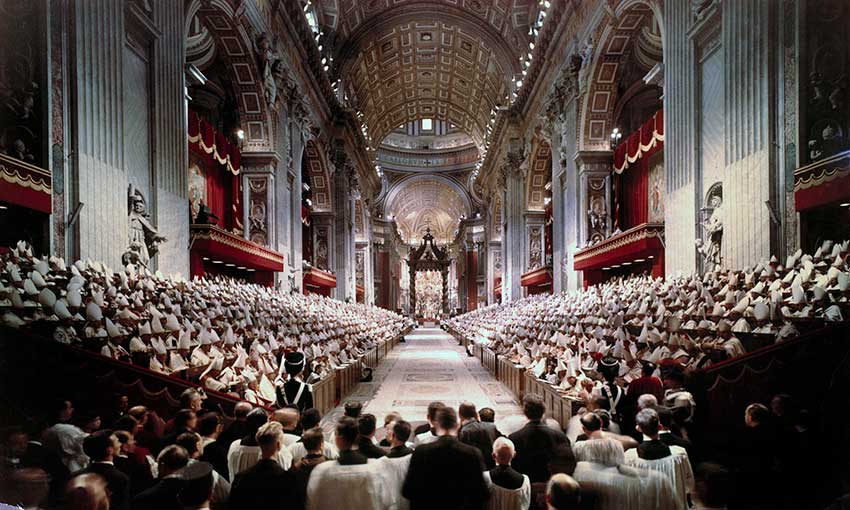
Sensus fidei, literally “sense of faith”, also called sensus fidelium, “sense of the faithful”, is described by the Catechism of the Catholic Church as “the supernatural appreciation of faith on the part of the whole people” (CCC 92). In the previous point the Catechism says: “All the faithful share in understanding and handing on revealed truth. They have received the anointing of the Holy Spirit, who instructs them and guides them into all truth” (CCC 91; cf. Jn 16:13).
In simple terms, the expression refers to the fact that the faithful of the Church, guided by the Holy Spirit, have a sense of what is right and true in matters of faith and morals.
The Second Vatican Council goes so far as to say that the faithful, including their pastors, are infallible when they are in agreement on some matters of truth: “The whole body of the faithful … cannot err in matters of belief. This characteristic is shown in the supernatural appreciation of faith (sensus fidei) on the part of the whole people, when, ‘from the bishops to the last of the faithful,’ they manifest a universal consent in matters of faith and morals” (LG 12; CCC 92).
It is clear that this does not mean that every individual is always right in whatever he or she may think, but rather that the whole body of the faithful, guided by their pastors, is led by the Holy Spirit into the truth.
The Second Vatican Council’s Dogmatic Constitution on the Church taught that the discernment of the faithful in matters of faith and morals “is exercised under the guidance of the sacred teaching authority, in faithful and respectful obedience to which the people of God accepts that which is not just the word of men but truly the word of God” (LG 12).

Pope Benedict XVI insisted on this point in a speech to the International Theological Commission on 7 December 2012. He said that, in its proper understanding, the sensus fidei is certainly not a kind of public ecclesial opinion, and invoking it in order to contest the teachings of the Magisterium would be unthinkable, since the sensus fidei cannot be authentically developed in believers except to the extent in which they fully participate in the life of the Church, and this demands responsible adherence to the Magisterium, to the deposit of faith.”
What is not a proper understanding of the sensus fidei, therefore, is the idea that if a group of sincere Catholics, even a large group, believes something, they are therefore guided by the Holy Spirit.
Since some Catholics today believe there should be women priests and women deacons, that contraception, abortion and euthanasia should be allowed in certain circumstances, and that Communion should be given to non-Catholics, practising homosexuals and people in irregular marriage situations, it would follow that the Church should change its teaching on these matters.
The Congregation for the Doctrine of the Faith, in its Instruction Donum veritatis (24 May 1990), explicitly rejected the notion that the opinion of a large number of Catholics would be an expression of the sensus fidei: “Not all the ideas which circulate among the People of God are compatible with the faith. This is all the more so given that people can be swayed by a public opinion influenced by modern communications media. Not without reason did the Second Vatican Council emphasise the indissoluble bond between the sensus fidei and the guidance of God’s People by the magisterium of the Pastors. These two realities cannot be separated” (n. 35).
Finally, Pope Francis, in an address to the International Theological Commission on 6 December 2013, said: “By the gift of the Holy Spirit, the members of the Church possess a ‘sense of faith’. This is a kind of ‘spiritual instinct’ that makes us sentire cum Ecclesia [think with the Church] and to discern that which is in conformity with the apostolic faith and is in the spirit of the Gospel. Of course, the sensus fidelium [sense of the faithful] cannot be confused with the sociological reality of a majority opinion. It is something else. It is, therefore, important – and one of your tasks – to develop criteria that allow the authentic expressions of the sensus fidelium to be discerned.”
With the Plenary Council commencing its deliberations a year from now in 2020, it is very important for everyone to have a clear understanding of what is, and what is not, the sensus fidei.
